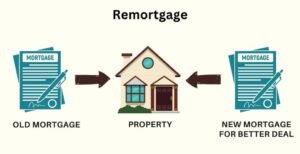
Buying a house is a momentous occasion. It’s a place to build memories, a foundation for your future, and – let’s be honest – a significant financial investment. But amidst the excitement and house hunting frenzy, there’s one crucial step that shouldn’t be overlooked: getting a property survey. Imagine the sinking feeling of discovering major structural issues after you’ve moved in and popped the bubbly. A property survey can be your shield against such unforeseen events, acting like a detective’s report on your potential dream home. So, is a property survey a mandatory expense, or an optional extra? Let’s delve into the world of surveys and see if one is right for you.
What is a Property Survey? Unveiling the Mystery
Imagine a property surveyor as a Sherlock Holmes for your new home. They’ll meticulously inspect the property, inside and out, to identify any structural problems, potential repairs, or hidden defects. The report they provide becomes a roadmap, highlighting areas that might need attention and giving you a clearer picture of the property’s overall condition.
Different Surveys for Different Needs
There are three main types of property surveys in the UK, each offering varying levels of detail:
Condition Report (Level 1 Survey): This basic survey focuses on the overall condition of the readily accessible parts of the property. It’s suitable for relatively new, standard properties in good condition.
Homebuyer’s Report (Level 2 Survey): This more in-depth survey dives deeper than the Level 1, identifying potential defects like damp, subsidence (ground movement), or roof issues. It also usually includes an estimated cost for repairs.
Building Survey (Level 3 Survey): This is the most comprehensive survey, ideal for older properties, listed buildings, or those with extensive renovations planned. It provides a detailed analysis of the property’s structure, materials, and potential problems, along with repair cost estimates.
Do You Need a Property Survey? Here’s How to Decide
While not mandatory, a property survey is highly recommended for most homebuyers. Here are some factors to consider when making your decision:
Property Age and Condition: Older properties or those showing signs of wear and tear might benefit more from a detailed survey.
Planned Renovations: If you plan major renovations, a comprehensive survey can highlight potential issues that might affect your plans (and your forecasted budget too).
Peace of Mind: For many, a survey provides valuable peace of mind, knowing exactly what they’re buying and avoiding any nasty surprises after purchase.
Remember: Surveys are an investment that can potentially save you a significant amount of money in the long run by uncovering hidden problems that might require expensive repairs. They can also serve as an important negotiation tool, giving you the legitimate justifications to put in a revised offer once issues have been identified with the property post-survey.
We Can Help You Navigate the Property Survey Maze!
At The Invested Mortgage Broker, we understand the importance of a property survey in the homebuying process. We can help you decide which type of survey is most suitable for your situation and connect you with reputable surveyors in your area.
Don’t embark on your homeownership journey without a clear picture of your potential property. Contact us today for a free, no-obligation chat! Together, we can make your dream of homeownership a reality.






